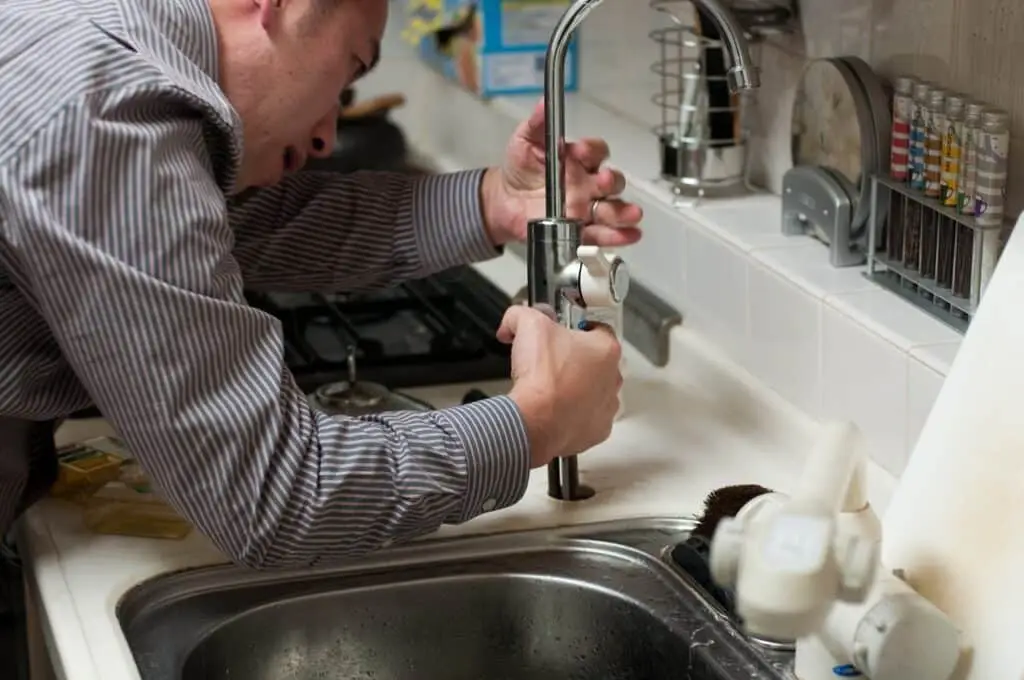While any plumbing problem can be a plumbing emergency for someone, not all are created equally. The true definition of a ‘plumbing emergency’ is a plumbing issue that requires immediate attention to prevent damage to your home or property. Tell that to the homeowner with a clogged toilet on Thanksgiving with 16 family members in their home.
How to Prepare for a Plumbing Emergency?
Being prepared for a plumbing emergency is essential in reducing the possibility of damage to your home. There is some information all homeowners should know about their home. Here is a short list of essentials:
- Know Where and How to Turn off the Main Water Supply to the Home.
There are usually 2 ways to turn off the water to the home. The first is at the front of the home where the water line enters. There is a valve that is used to turn off the water. The second is at the meter. Which is usually located on the street inside a meter box.
- What is a Clean-out, and Where is it Located?
A clean-out is a pipe that sticks out of the ground or the side of the building and provides direct access to the drain line. Clean-outs are usually found in the front yard of the home or sticking out of the siding. Some older homes do not have a clean-out as they were not required when it was built.
- Do My Emergency Shut off Valves Work for All of My Fixtures?
An emergency shut off valve or E.S.O is the valve that is located below a fixture such as the toilet or faucet. It is a good idea to test the valve periodically to ensure it works as expected. To test the valve, turn it off and test the fixture. If there is no flow, you know you can count on that E.S.O in the event of an emergency.
Recognizing the First Signs of a Plumbing Emergency
Unfortunately, there aren’t usually any warning signs before a pipe bursts or your water heater stops producing hot water. But, sometimes there are little hints that all is not well with the system. Here, we will go through some of the tell-tale signs to look out for.
- Bubbling and Gurgling Sounds
Bubbling and gurgling sounds when the toilet is flushed or water is running are the first signs of the sewer not draining properly. It is most common for the toilet to gurgle or ‘talk to you’ when the laundry or tub is draining. This is because of the air displacement that has nowhere to go, so pushes up through the toilet and causes the bubbling sound. If your toilet is bubbling, try to keep water use to a minimum and DO NOT run the washing machine.
- Higher Water Bill
A higher than usual water bill that has no reasonable explanation is something to take seriously. This is a good sign of a leak somewhere in the system. It is best to check the toilets first and make sure a leaky flapper isn’t the cause, and then move onto the waterline.
- Higher Gas Bill
A higher gas bill, just like a high water bill, is an excellent indication there is a leak somewhere. While both these problems warrant your immediate attention, gas leaks are always treated as an emergency. A full pressure test of the gas system will need to be performed to determine if there is a leak and where.
- Popping and Banging Sounds in the Water Heater. Wet Spots Near the Water Heater
Popping and banging sounds in the water heater are usually caused by sediment in the base of the tank. When the water heats up, the sediment begins to pop. An older tank that has not been properly maintained will have more of this issue. Wet spots near the water heater are a cause for concern and should be investigated immediately. These wet spots could be an early sign of a cracked tank, so have the tank and connections inspected, A.S.A.P!
Leaving a Plumbing Emergency Unattended Can Cause Serious Damage, such as:
- Water Damage: Leaks that go ignored for long periods of time can cause water damage to walls, floors, and foundations, leading to expensive repairs and possible mold growth.
- Structural Issues: Persistent plumbing problems can weaken the structural integrity of your home, as water can erode foundations and support beams over time.
- Increased Repair Costs: Small plumbing issues can escalate into larger issues if not fixed efficiently, resulting in higher repair costs and more extensive work needed.
- Health Hazards: Unresolved plumbing problems can lead to unsanitary conditions, such as sewage backups, which pose health risks to residents.
- Higher Utility Bills: Leaks and inefficient plumbing can lead to heightened water bills, as you may be paying for water that is wasted.
First Steps to Take When a Plumbing Emergency Occurs
When it comes to a plumbing emergency, speed is your friend. This is especially true when it comes to leaks or sewer back-ups. It doesn’t take long for a leak to cause severe damage. The first step to take when you discover a leak is to turn off the water or gas to the fixture or the home right away. Once the leak is stopped, it’s time to call a professional. Sewer back-ups can be stopped or slowed down by not using any more water in the home.
Yorkshire Plumbing and Drain Services is here in Santa Rosa to take care of any plumbing emergency. Give us a call at 707 492 9656 and we will get your home or business back on track!






